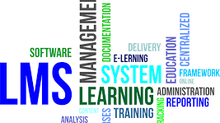LEARNING BY THE WATER-COOLER: Episode 3
- Kurt Tiltack

- Dec 2, 2020
- 3 min read

LEARNING is everything and everything is learning.
“Culture eats strategy for breakfast.”
What do we learn from that bold statement? Apart from the fact that esteemed business thinker Peter Drucker sure knew how to spin a line. Corporate culture has long since been a topic of fascination for every Fortune 500 CEO, every budding entrepreneur, every risk-taking small business owner. We all recognise the importance of the right culture, but in 2020 the road map to finding it just got a heck of a lot more complicated.
The essence of the idea behind the Learning by the Water-Cooler series, was to find a way to mirror those informal office chats that so often pave the way for light-bulb moments, or solutions to problems in the workplace. There is no question that when 2021 arrives, many of us will still be working remotely from the home “offices” that have become such a feature of our lives throughout the COVID-19 pandemic.
So how do we create a meaningful business culture against that challenging backdrop?
There are elements you could find in any eLearning module on Managing Remote Teams. For example, better and consistent utilization of technology, regular team meetings, and or fixed one-on-one associate conversations. But now, more than ever, with the working ‘world’ at home, culture, is about trust. Are they really working? How do I know? Is the work effort about the deliverable, or about the time spent at their desk ‘appearing’ to be working? Why do I care? Do I trust them, or don’t I?
It’s natural for managers to have that nagging suspicion that those who work from home have it easy or are ‘mailing it in’ – at least a little. We’ve likely all had that feeling that an employee (who should be working) is instead checking out the latest sports news, rather than focusing on their project looming towards a deadline. Maybe they’ve even had the audacity to finish a household chore or walk the dog. My goodness the anarchy.
If the goal is to prevent isolation, to create a foundation of ‘we really are in it together’ - then the traditional office (management) mindset has to alter. Give up some control. Share leadership on projects, design collaborative tasks to promote the concept of teamwork and increase contact with others. Drive trust and build a sustainable culture.
As we pray for brighter days and a vaccine roll-out we hope sees the majority of Canadians protected from the virus by Fall 2021, there is no doubt we are all going to return to workplaces that have changed and employees that have changed with them. 'Future-proofing’ our business’ therefore, requires learning at every turn. It means truly acknowledging that the employment landscape is different. A recent Gartner survey found that 74% of Chief Financial Officers who responded will be switching at least 5% of workers who were previously on-site to remote status when the pandemic is over.
At Pathways, we have been fortunate over the last 15 years to work with superb partners who gave us the inside track on how their culture was developed and, in many cases, to work alongside them as it continued developing. Building a culture requires empathy and a desire to truly know your people. That’s ‘people’, not staff. If those (sometimes) mocked "warm and fuzzy" soft skills are nurtured as a leader, then there are many slick and clever learning tools available now to help you complete the task.
Author and motivational speaker Simon Sinek summed it up perfectly. “Customers will never love a company until the employees love it first.”
Building that love of the firm for those working within their own four walls will be one of next year’s biggest business challenges.
Do you need help managing the training of YOUR remote workers?































Comments